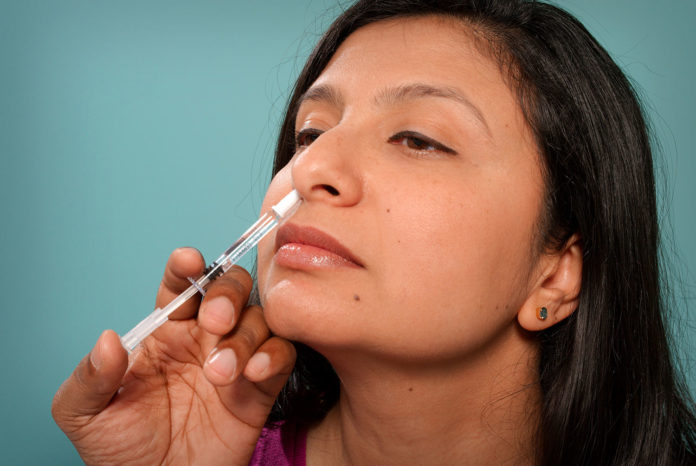Emerging COVID-19 variants have provoked scientists to test the effectiveness of existing vaccinations and boosters against new strains. A new response to a rapidly mutating virus may be found at the door of our lungs.
A new study by Yale‘s Akiko Iwasaki and her colleagues found that intranasal immunization protects against heterologous respiratory viruses in mice. Systemic immunization, on the other hand, did not.
Iwasaki said, “The best immune defense happens at the gate, guarding against viruses trying to enter.”
Antibodies secreted at the mucosal surface have a significant role in immune defense. They neutralize the pathogen and promote its elimination at the site of entry. When challenged, these barrier tissues produce B cells, which in turn secrete immunoglobin A (IgA) antibodies.
The role of IgA in intestinal mucosa has been extensively studied. However, the cell types that secret IgA to protect the host against pathogens in the lower respiratory tract are less clear.
Scientists tested a protein-based vaccine designed to jump-start an IgA immune response in collaboration with the Icahn School of Medicine at Mount Sinai in New York. They immunized vaccines to mice through injections with systemic immunizations and intranasally.
They then exposed mice to multiple strains of influenza viruses. Mice that had received the vaccine intranasally were more protected against the virus than those that received injections. These nasal vaccines also induced antibodies that protected the animals against various flu strains.
Currently, scientists are testing the nasal vaccine strains against COVID-19 strains in animal models.
Both vaccine injections increased the levels of antibodies. However, only the nasal vaccine allowed IgA secretion into the lungs.
Iwasaki said, “If the nasal vaccines prove to be safe and efficient in humans, Iwasaki envisions them being used in conjunction with current vaccines and boosters that work system-wide to add immune system reinforcements at the source of infection.”
Journal Reference:
- Ji Eun Oh, Eric Song et al. Intranasal priming induces local lung-resident B cell populations that secrete protective mucosal antiviral IgA. Science Immunology, 2021; DOI: 10.1126/sciimmunol.abj5129
